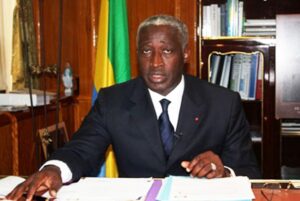A two-year transition to polls, according to Gabon’s junta, is “appropriate.
Advertisements

The interim prime minister suggests setting a 24-month target for completing the process before making any potential adjustments to the timeline.
A two-year transition before the free elections promised by Gabon’s new military rulers is a “reasonable objective,” the new prime minister they appointed told AFP in an interview.
“It’s good to set off with a reasonable objective by saying: we have the desire to see the process come to an end in 24 months so we can go back to elections,” said Raymond Ndong Sima on Sunday, prime minister during the transition.
That period could end up being slightly longer or shorter, he added. Ndong Sima was appointed last week as head of the transitional government by General Brice Oligui Nguema, who led the August coup against President Ali Bongo Ondimba.
The coup happened on August 30, moments after Bongo had been declared the winner of a presidential election, which both the army and the opposition declared fraudulent.
Nguema, proclaimed president for the transitional period, immediately promised to hand the country back to civilian rule with elections after a transitional period, the length of which he did not immediately specify.
Ndong Sima, 68, is a Paris-educated economist who served as prime minister under Bongo from 2012 to 2014 before becoming a critic and competing against him in the 2016 and 2023 presidential campaigns.
His appointment, announced on state TV, was made in a decree on Thursday by Oligui.

Junta in Gabon claims that two-year transition to elections is “reasonable.”
New constitution, electoral code
Under the transitional charter, no member of this temporary government will be able to stand in the next presidential election.
There does not, however, appear to be anything to prevent Oligui from taking part in that race.
The general has also promised a new constitution, to be adopted by referendum, and a new electoral code.
“The principle announced” by the military, said Ndong Sima, “is that there is no longer either an opposition nor a majority, so we are taking people in all political families.
Those drawing up the new texts for the country “will discuss this aspect of things, that is to say the duration (of the transition) and who is really allowed to stand (for election) and not to stand,” the prime minister added.
“It would not, however, be good for the military to stand, so they can be impartial and objective arbiters of the elections,” he said.
The new government that Ndong Sima announced on Saturday included military figures and ex-ministers under ousted president Ali Bongo Ondimba, but none of the main opposition figures.